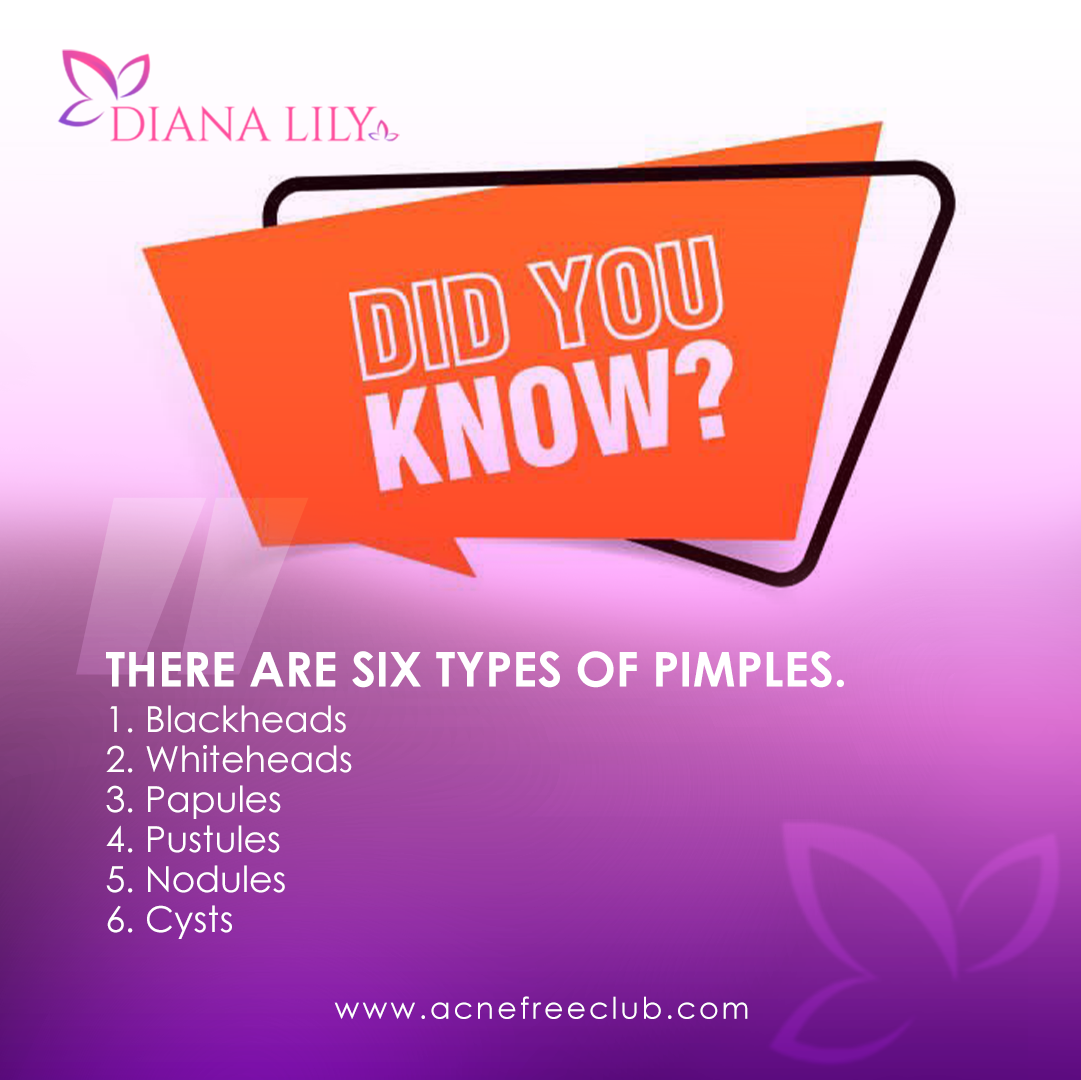Acne is a prevalent skin condition that affects people of all ages, especially adolescents. It occurs when dead skin cells, oil, and bacteria clog hair follicles, leading to pimples. Acne comes in six different forms, each with varying severity and treatment recommendations.
- Blackheads: These are open pores that appear black due to oxidation, not dirt. Salicylic acid exfoliants can help treat blackheads, as they are gentle and non-irritating.
- Whiteheads: These little white pimples are caused by clogged pores. Products containing benzoyl peroxide can help open the pores and keep them under control.
- Papules: Small, red, inflammatory pimples form when blocked pores irritate the surrounding tissue. Retinoids are effective anti-inflammatory treatments for papules.
- Pustules: These are pus-filled, red-based pimples caused by bacterial infections. Pustules should not be popped and can be managed with antimicrobial treatments like benzoyl peroxide.
- Nodules: Large, painful lumps deep under the skin, caused by extreme inflammation. Nodules require medical attention, including prescription antibiotics, to treat.
- Cystic Acne: The most severe form of acne, cystic lumps are deep, painful, pus-filled pits that often leave scars. They typically require professional treatment with isotretinoin.
Consequences of Untreated Acne
Ignoring acne can lead to long-term consequences. Untreated pimples may worsen into more severe forms, such as cysts or nodules, by increasing inflammation. This can result in post-inflammatory hyperpigmentation, which may take months or even years to fade. It can also lead to scarring—either pitted or raised scars that remain long after the acne is gone.
Additionally, frequent breakouts can change the skin’s texture, leading to uneven or rough skin. Beyond the physical effects, chronic acne can negatively impact emotional well-being, contributing to low self-esteem, stress, and even depression.
The Importance of Early Treatment
Avoiding long-term damage relies on early treatment. While over-the-counter medications can be effective for mild to moderate acne, more severe forms require professional advice from a dermatologist. A regular skincare routine, along with quick intervention, not only improves skin health but also protects emotional confidence, ultimately leading to a better quality of life over time.
For more skincare tips and advice, visit our website at www.acnefreeclub.com and check out our YouTube channel for helpful videos.

